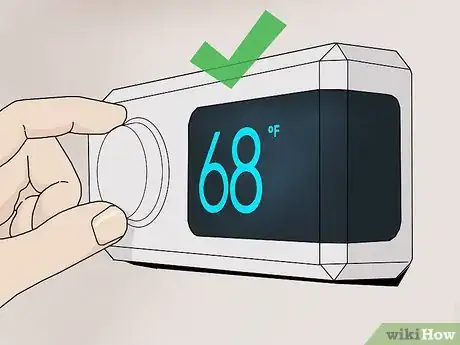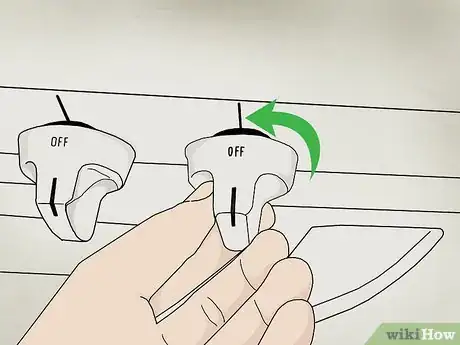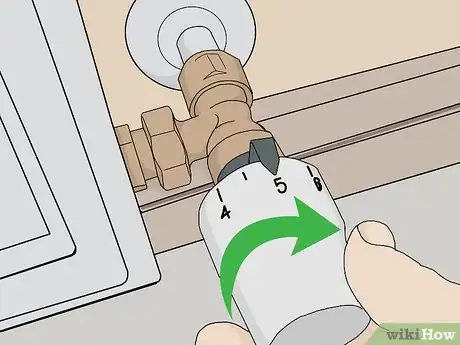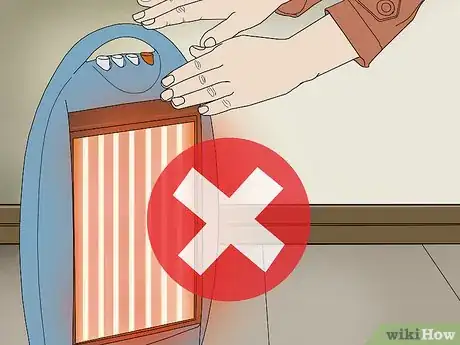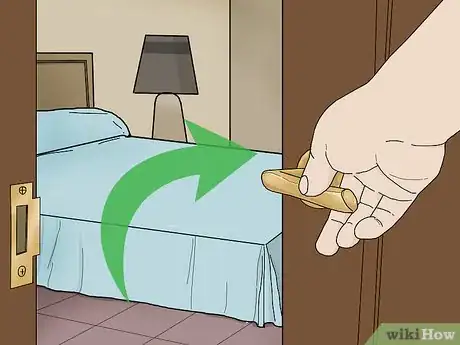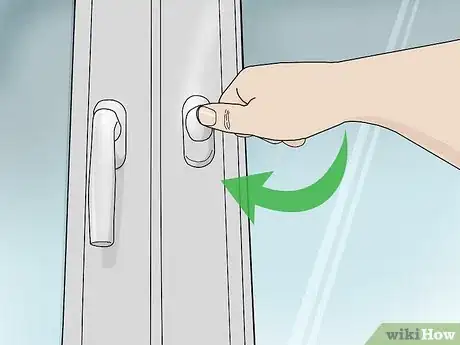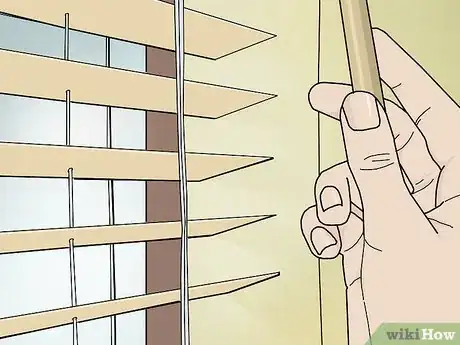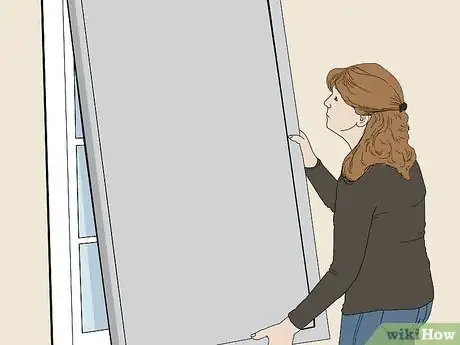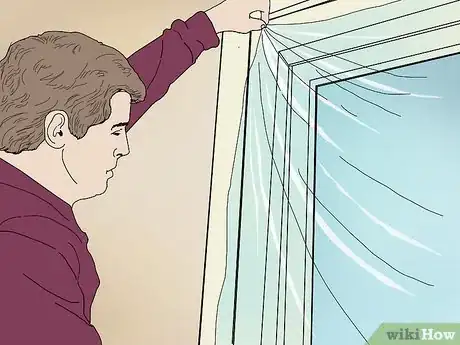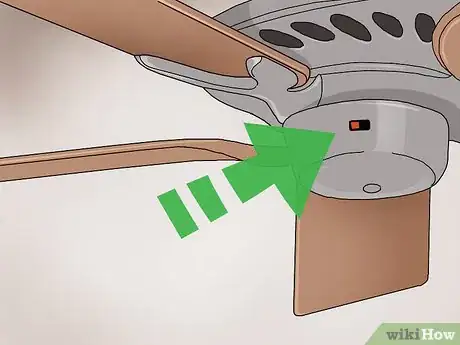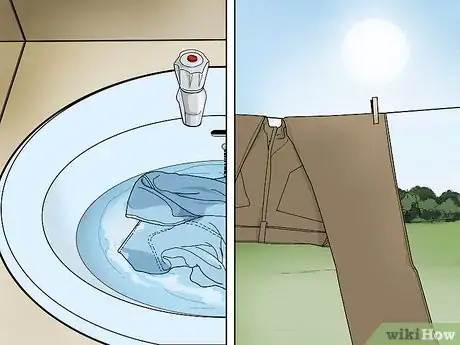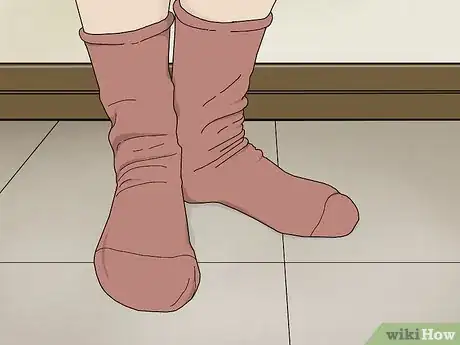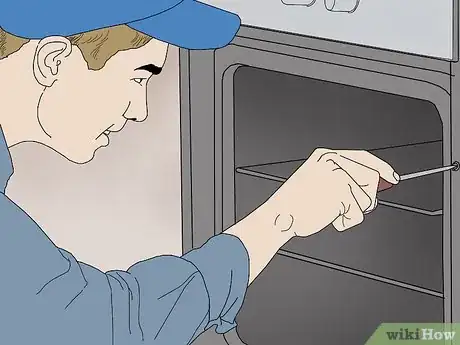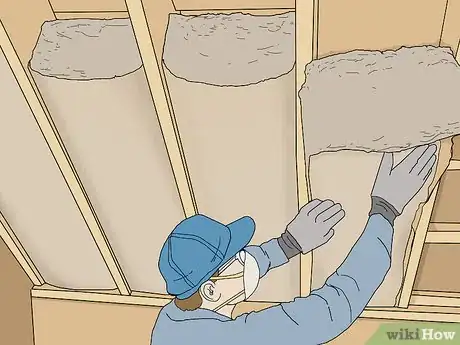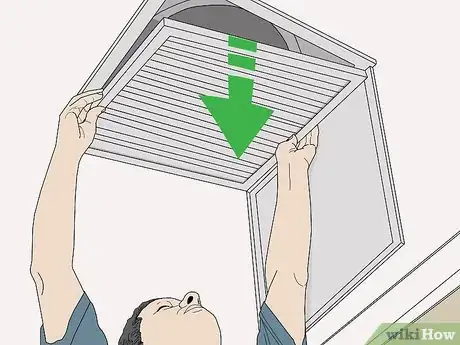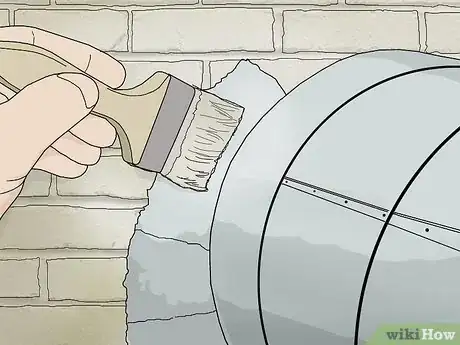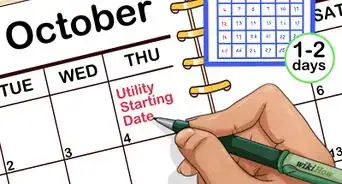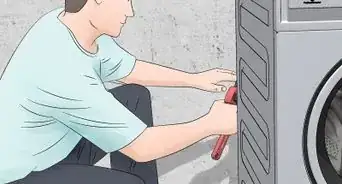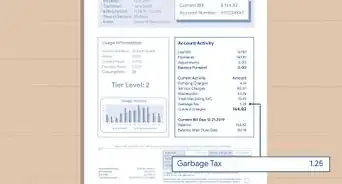This article was co-authored by Kathryn Kellogg and by wikiHow staff writer, Sophia Latorre. Kathryn Kellogg is the founder of goingzerowaste.com, a lifestyle website dedicated to breaking eco-friendly living down into a simple step-by-step process with lots of positivity and love. She's the author of 101 Ways to Go Zero Waste and spokesperson for plastic-free living for National Geographic.
There are 9 references cited in this article, which can be found at the bottom of the page.
This article has been viewed 55,297 times.
If you use natural gas in your home, the bill can be quite expensive. Don’t worry, though! There are several strategies you can use to reduce your gas bill, like cutting back on your energy usage and making your home more energy efficient.
Steps
Reducing Energy Use
-
1Lower the thermostat. If your thermostat is set to a high temperature, your gas bill is bound to be expensive. Try lowering your thermostat a few degrees to reduce your bill by 5-10%.[1]
- For instance, turn the temperature from 70 °F (21 °C) to 68 °F (20 °C).
-
2Turn off the heat when you’re not home. Don’t keep the heat on in your home when it’s not necessary. Turn off the heat when you’re at work or gone on the weekends. The energy saved will reduce the cost of your gas bill.[2]Advertisement
-
3Save energy with radiator valves. Some areas in your home need to be warmer than others. For example, it may be important to you to keep the main floor warm, while the basement can be a bit cooler. You can control the heat by installing radiator valves on every radiator in your home.[3]
- These self-regulating valves allow you to control the temperature of each room by adjusting the amount of hot water goes to the radiator.
-
4Reduce the use of personal heaters. Personal, or space, heaters use up a lot of energy. Plus, they are an inefficient way of warming up large areas. Avoid using them and instead look for more efficient ways to keep warm—like improving your home’s insulation.[4]
- If you want to warm a small space only, a personal heater may be more effective than heating the whole home with a furnace. Choose a radiant heater, which are more energy-efficient than other models.
Making Changes Around Your Home
-
1Keep all vents and interior doors open if you have forced air. It is commonly thought that closing vents and doors to unused rooms will reduce energy use, but doing this actually drives up the cost of your gas bill. Keep all the vents and interior doors in your home open to promote airflow.[5]
- However, if you adjust a radiator valve to lower the temperature of a specific room, you can close the door to that room to prevent cooler air from leaking into warmer rooms.
-
2Close your windows and exterior doors. If you leave your windows or exterior doors open during cold months, the warm air will simply escape. Be sure to keep all your window and exterior doors closed. If there’s a gap beneath a door, roll up a towel and place it against the bottom of the door to block out the cold air.[6]
-
3Keep your blinds open during the day and closed at night. During the day, keep your blinds, shades, or curtains open to let the sunlight in. This will help your house warm up. When the sun goes down, close all your blinds, shades, or curtains to keep the warm air in.[7]
-
4Use insulated panels to cover your windows. Insulated panels can keep cold air from seeping through your glass windows. These panels are typically made of foam board and can be found at home improvement stores. Measure your windows before heading to the store so you can purchase panels of the correct size. Press the panels against the windows, then use strips of magnetic tape to secure the panels to the window frame.[8]
-
5Cover your windows with plastic film insulation as an alternative. During the cold months, putting plastic film insulation over your windows can help prevent warmth from escaping your home. This film can be found at home improvement stores and is easy to install. Generally, the film comes in pre-cut sheets, so you may need to use multiple sheets and/or trim some of the sheets down to fit over your windows. Simply press the adhesive side of the film against the window glass.[9]
-
6Set your ceiling fans to run clockwise. Running ceiling fans clockwise will keep the air circulating throughout the room. This keeps the room warmer than running the fans counterclockwise. In the summer, you can switch the fans to counterclockwise keep the room cool.[10]
-
7Use cool water to wash clothes and hang them up to dry. When washing your clothes, use a cool water temperature to conserve energy. Whenever possible, dry your clothes on a line outside or hang them up to dry indoors.[11]
- Be sure to check the care tag on your clothing items to make sure washing them in cool water won’t damage the fabric.
-
8Wear socks and sweaters to keep warm. Wearing thin clothes will make you want to turn the heat up. Also, your whole body will feel colder if your feet are cold. Wear thick socks and bundle up in a sweater or use a blanket to stay warm.[12]
Doing Regular Maintenance
-
1Get your gas appliances serviced every year. Each year, you should have an HVAC technician inspect and service any gas appliances you have, such as a stove or heater. Properly maintaining your appliances can prevent breakdowns in addition to lowering your gas bill.[13]
-
2Make sure your home is well insulated. A home that is poorly insulated will be harder to keep warm, so your gas bill is likely to be more expensive. Though it’s best to have your home professionally insulated, you can add insulation yourself if you want. However, you’ll need to drill holes into the sheathing and spray foam insulation into the walls. Then, you’ll need to repair the drywall.[14]
-
3
-
4Get your air ducts sealed by a professional. Warm air may be escaping through holes or cracks around your air ducts. Call in an HVAC professional and ask them to seal the air ducts in your home. This will help keep the warm air inside and reduce your gas bill.[16]
Expert Q&A
Did you know you can get expert answers for this article?
Unlock expert answers by supporting wikiHow
-
QuestionHow can I reduce gas in my home?
 Kathryn KelloggKathryn Kellogg is the founder of goingzerowaste.com, a lifestyle website dedicated to breaking eco-friendly living down into a simple step-by-step process with lots of positivity and love. She's the author of 101 Ways to Go Zero Waste and spokesperson for plastic-free living for National Geographic.
Kathryn KelloggKathryn Kellogg is the founder of goingzerowaste.com, a lifestyle website dedicated to breaking eco-friendly living down into a simple step-by-step process with lots of positivity and love. She's the author of 101 Ways to Go Zero Waste and spokesperson for plastic-free living for National Geographic.
Sustainability Specialist Check for a program through your energy company that will help you switch to renewable energy. Some energy providers will allow you to offset your energy bill by working in conjunction with a provider that uses all renewable energy. That way, your energy comes from clean sources, making it more efficient to use electricity instead of gas.
Check for a program through your energy company that will help you switch to renewable energy. Some energy providers will allow you to offset your energy bill by working in conjunction with a provider that uses all renewable energy. That way, your energy comes from clean sources, making it more efficient to use electricity instead of gas. -
QuestionHow can I cut down my gas bill?
 Kathryn KelloggKathryn Kellogg is the founder of goingzerowaste.com, a lifestyle website dedicated to breaking eco-friendly living down into a simple step-by-step process with lots of positivity and love. She's the author of 101 Ways to Go Zero Waste and spokesperson for plastic-free living for National Geographic.
Kathryn KelloggKathryn Kellogg is the founder of goingzerowaste.com, a lifestyle website dedicated to breaking eco-friendly living down into a simple step-by-step process with lots of positivity and love. She's the author of 101 Ways to Go Zero Waste and spokesperson for plastic-free living for National Geographic.
Sustainability Specialist
-
QuestionWhat uses the most gas in a home?
 Drew Hawkins1Community AnswerIn general, most of the gas used in your home is used by space heating and your water heater. But, there are things you can do to cut down on your gas usage. For example, it's commonly thought that closing vents and doors to unused rooms will reduce energy use, but doing this actually drives up the cost of your gas bill. Keep all the vents and interior doors in your home open to promote airflow. Personal, or space, heaters use up a lot of energy. Plus, they are an inefficient way of warming up large areas. Avoid using them and instead look for more efficient ways to keep warm—like improving your home’s insulation. It'll save you money in the long run. When you're washing your clothes, use a cool water temperature to conserve energy. Whenever possible, dry your clothes on a line outside or hang them up to dry indoors. Find little ways you can avoid using gas energy to cut down on your use.
Drew Hawkins1Community AnswerIn general, most of the gas used in your home is used by space heating and your water heater. But, there are things you can do to cut down on your gas usage. For example, it's commonly thought that closing vents and doors to unused rooms will reduce energy use, but doing this actually drives up the cost of your gas bill. Keep all the vents and interior doors in your home open to promote airflow. Personal, or space, heaters use up a lot of energy. Plus, they are an inefficient way of warming up large areas. Avoid using them and instead look for more efficient ways to keep warm—like improving your home’s insulation. It'll save you money in the long run. When you're washing your clothes, use a cool water temperature to conserve energy. Whenever possible, dry your clothes on a line outside or hang them up to dry indoors. Find little ways you can avoid using gas energy to cut down on your use.
Warnings
- Although lowering the thermostat in your home will save money on the gas bill, don’t lower it so much that you and your family members will be uncomfortably cold.⧼thumbs_response⧽
References
- ↑ https://www.today.com/home/10-tricks-reducing-your-heating-bill-2D80555200
- ↑ https://www.sustainablebusinesstoolkit.com/how-to-reduce-gas-heating-bill/
- ↑ https://www.cse.org.uk/downloads/file/advice_leaflet-how-your-GCH-works-mechanical.pdf
- ↑ https://www.sustainablebusinesstoolkit.com/how-to-reduce-gas-heating-bill/
- ↑ https://www.todayshomeowner.com/video/closing-vents-and-doors-to-unused-rooms/
- ↑ https://www.todayshomeowner.com/video/closing-vents-and-doors-to-unused-rooms/
- ↑ https://www.in.gov/oucc/2397.htm
- ↑ https://energy.gov/energysaver/energy-efficient-window-treatments
- ↑ https://www.homerepairtutor.com/how-to-weatherize-windows-with-plastic-film-insulation/
- ↑ https://www.in.gov/oucc/2397.htm
- ↑ https://www.in.gov/oucc/2397.htm
- ↑ https://www.today.com/home/10-tricks-reducing-your-heating-bill-2D80555200
- ↑ https://www.today.com/home/10-tricks-reducing-your-heating-bill-2D80555200
- ↑ https://energy.gov/energysaver/weatherize/insulation
- ↑ https://www.energystar.gov/index.cfm?c=heat_cool.pr_hvac
- ↑ https://www.energystar.gov/index.cfm?c=heat_cool.pr_hvac
- ↑ https://www.today.com/home/10-tricks-reducing-your-heating-bill-2D80555200
